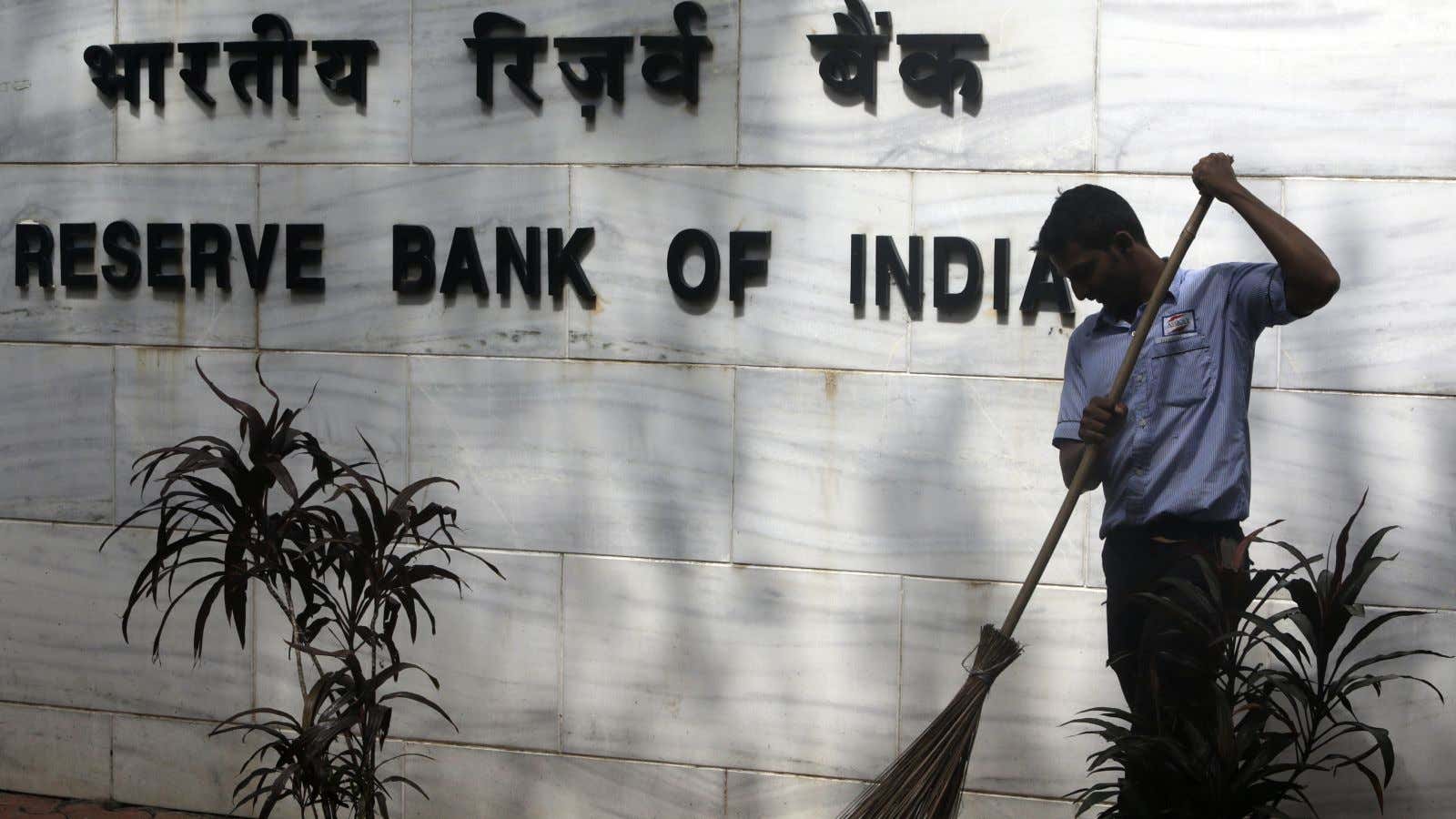The Reserve Bank of India (RBI) has had enough. Despite lenders’ protestations, the banking regulator believes a complete overhaul in the reporting and resolution structure of bad loans is the need of the hour. So, a reversal of the new, tighter norms it issued in February is unlikely.
This new framework to deal with non-performing assets (NPAs) mandates weekly reporting, requiring banks to recognise the problem instantly, and leaves little room for account jugglery.
Not surprisingly, banks are not too enthused and have reportedly been lobbying for a breather. They are specifically unhappy about classifying a loan as an NPA even if the interest or principal amount is overdue by a day, over and above the 90-day repayment deadline. Usually, they decide on a case-to-case basis, which often helps under-report NPA levels.
However, RBI deputy governor NS Vishwanathan made it clear on April 18 that the regulator refuses to be swayed. The move, he said speaking in Pune, will break the “banker-borrower nexus.”
At a time when the stressed assets in the banking system, as of December 2017, are at 11.90%—out of every Rs100 lent out, Rs11.90 is at the risk of not being recovered—a tough stance is required, the RBI believes.
So here’s a list of issues raised by banks and the central bank’s rebuttal.
NPAs will increase
Banks: The share of soured loans in the sector will reportedly go up by Rs2.8 lakh crore because of the new reporting structure, as per a news report. At a time when banks are burdened with Rs8.41 lakh crore of gross NPAs as of December 2017, this can severely affect their financial health.
RBI: The crux of the NPA problem is the banks’ reluctance to recognise a default on time. “Default in repayment is a lagging, not leading, indicator of financial stress of a borrower…Lenders need to be proactive in monitoring their borrowers and be able to identify financial stress…rather than wait for a borrower to default,” said Vishwanathan.
Deadline too tight
Banks: Lenders believe that at times payments are delayed by a day or two on account of genuine cash flow problems and can be overlooked in certain instances.
RBI: In the capital market, a firm would be severely penalised for repayment delays and, therefore, companies respect deadlines. So Vishwanathan dubbed these concerns “unfounded” and reminded banks that deadlines must remain sacrosanct. Such delays should also be treated as an early-warning signal and the new norms are aimed at correcting credit behaviour.
Less flexibility
Banks: The old norms such as the joint lenders’ forum (JLF), corrective action plan, and strategic debt restructuring scheme, under which a resolution plan was earlier arrived at, have been scrapped. This, they say, leaves them with little room to discuss and arrive at a solution for an account where other lenders are involved, too.
RBI: The new norms provide more flexibility to lenders and stressed borrowers as long as they work towards a credible, time-bound resolution plan. For instance, in the JLF structure, all bankers in the consortium had to arrive at the same resolution, which could be challenging. The new regime allows lenders to make plans based on their own risk policies.
Evergreening versus genuine fresh-financing
Banks: Lenders have been resorting to evergreening of loans to delay recognising NPAs. Evergreening refers to the the practice of firms taking up a fresh loan to repay old ones. The new norms strictly prohibit this, which may close the door on firms with genuine business finance needs.
RBI: Vishwanathan explained that fresh-financing isn’t prohibited under the new norms. It’s just that banks must have strict guidelines and no exception must be made for any firm or individual.
The RBI deputy governor also cautioned banks against an excessive focus on retail loans (auto, home, personal loans), a tendency gained in the wake of souring corporate loans. He said banks must avoid this “herd movement.” “There are risks here (in retail), too, that should be properly assessed, priced, and mitigated,” he warned.
